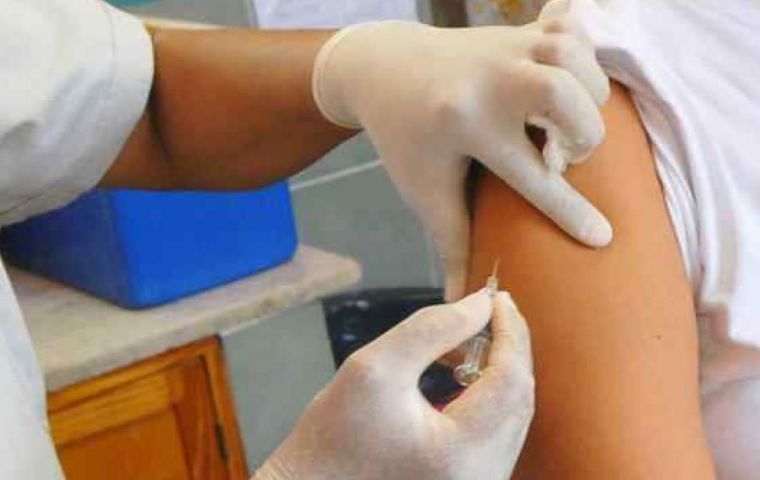MercoPress. South Atlantic News Agency
Yellow fever cases re-emerge in the Brazilian state of Sao Paulo
 Brazilian national authorities have started vaccination campaigns in areas previously considered not at risk for yellow fever transmission.
Brazilian national authorities have started vaccination campaigns in areas previously considered not at risk for yellow fever transmission. Between July and mid-October 2017, a total of 71 suspected yellow fever cases were reported in São Paulo State, Brazil. Of these, two were confirmed, six are under investigation, and 63 were ruled out.
The two confirmed cases (one of which was fatal) were reported from Itatiba from 17 September through 7 October 2017, according to the latest release from the World Health Organization.
From July to early November, 580 epizootics in non-human primates (NHPs) were reported in São Paulo State, with an increase in the number of cases reported from 10 September 2017. Of these, 120 were confirmed for yellow fever, 233 are under investigation, 74 were classified as undetermined, and 153 were ruled out. The highest number of epizootics was registered in the health surveillance area of Campinas, where epizootic episodes were reported for the first time in the municipalities of Campo Limpo Paulista (in the week ending 23 September 2017), Atibaia (in the week ending 30 September 2017), and Jarinu (in the week ending 14 October 2017). Epizootics in NHPs were also recently reported in large parks located within the urban area of São Paulo City (in the week ending 14 October 2017).
The detection of two confirmed yellow fever human cases and epizootics in the state of São Paulo, as well as confirmed yellow fever epizootics in the urban area of São Paulo City, prompted national authorities to begin vaccination campaigns in areas previously considered not at risk for yellow fever transmission. In addition, state and municipality health authorities are strengthening health care services and carrying out risk communication activities.
These are the first human cases of yellow fever that have been reported in Brazil since June 2017. These cases, alongside the occurrence of epizootics in the urban area of São Paulo City and in municipalities that were previously considered not at risk for yellow fever, are a public health concern. Although Brazilian health authorities have swiftly implemented a series of public health measures in response to this event, including mass vaccination campaigns, it may take some time to reach optimal coverage in these areas given the large number of susceptible individuals. Currently, the number of unvaccinated people in São Paulo City remains high at around 10 million. If yellow fever transmission continues to spread to areas that were previously considered not at risk for yellow fever, ensuring the availability of vaccine and implementing control measures would pose significant challenges. (WHO)




Top Comments
Disclaimer & comment rules-

Read all commentsREF: “Yellow fever cases re-emerge”: Brazil, after all, is a re-emerging country:
Nov 26th, 2017 - 10:51 am 0https://i2.wp.com/www.humorpolitico.com.br/wp-content/uploads/2017/11/Temer-investigado.jpg?w=640&ssl=1
Commenting for this story is now closed.
If you have a Facebook account, become a fan and comment on our Facebook Page!